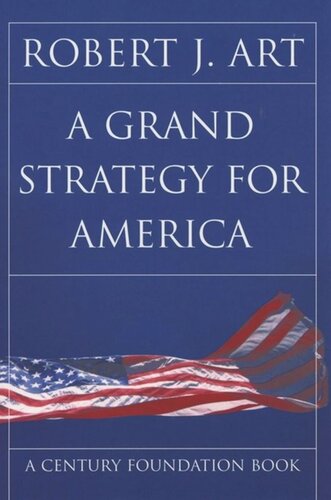

Most ebook files are in PDF format, so you can easily read them using various software such as Foxit Reader or directly on the Google Chrome browser.
Some ebook files are released by publishers in other formats such as .awz, .mobi, .epub, .fb2, etc. You may need to install specific software to read these formats on mobile/PC, such as Calibre.
Please read the tutorial at this link: https://ebookbell.com/faq
We offer FREE conversion to the popular formats you request; however, this may take some time. Therefore, right after payment, please email us, and we will try to provide the service as quickly as possible.
For some exceptional file formats or broken links (if any), please refrain from opening any disputes. Instead, email us first, and we will try to assist within a maximum of 6 hours.
EbookBell Team

0.0
0 reviewsThe United States today is the most powerful nation in the world, perhaps even stronger than Rome was during its heyday. It is likely to remain the world's preeminent power for at least several decades to come. What behavior is appropriate for such a powerful state? To answer this question, Robert J. Art concentrates on "grand strategy"—the deployment of military power in both peace and war to support foreign policy goals.He first defines America's contemporary national interests and the specific threats they face, then identifies seven grand strategies that the United States might contemplate, examining each in relation to America's interests. The seven are:• dominion—forcibly trying to remake the world in America's own image;• global collective security—attempting to keep the peace everywhere;• regional collective security—confining peacekeeping efforts to Europe;• cooperative security—seeking to reduce the occurrence of war by limiting other states' offensive capabilities;• isolationism—withdrawing from all military involvement beyond U.S. borders;• containment—holding the line against aggressor states; and• selective engagement—choosing to prevent or to become involved only in those conflicts that pose a threat to the country's long-term interests.Art makes a strong case for selective engagement as the most desirable strategy for contemporary America. It is the one that seeks to forestall dangers, not simply react to them; that is politically viable, at home and abroad; and that protects all U.S. interests, both essential and desirable. Art concludes that "selective engagement is not a strategy for all times, but it is the best grand strategy for these times."